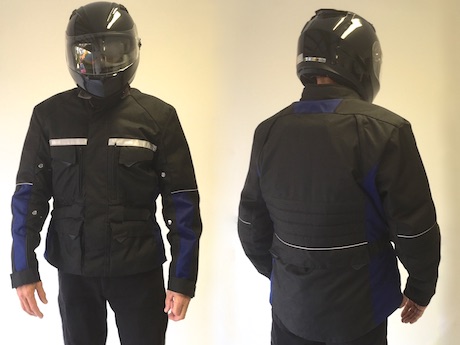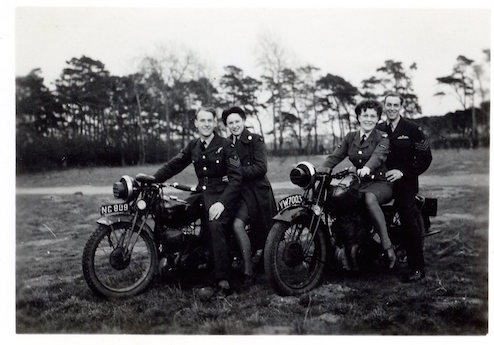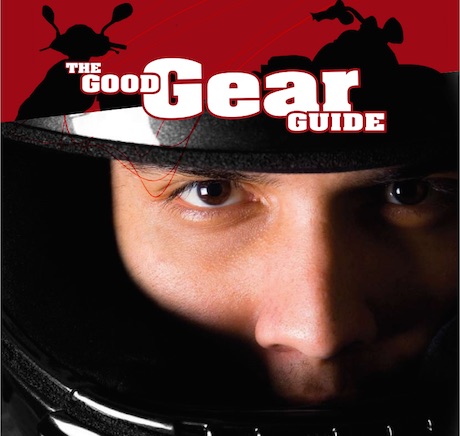Eight out of 10 of the most commonly worn motorcycle suits in Australia have failed abrasion tests conducted by Dr Chris Hurren at Deakin University in a joint study with researchers from Neuroscience Research Australia in Sydney.
Senior Research Officer Dr Liz de Rome says only two passed at the minimal level of the European standard.
“Eight failed miserably,” she says.

“They are supposed to give four seconds of slide time but quite a number of them got less than half a second.
“The gear that is out there is not good. We need to get the manufacturers competing to improve, without a set upper limit for performance.”
While the study has not yet been published, preliminary findings were presented at the Australasian Road Safety Conference (2015).
“We will not be publicly releasing the names of the brands we tested. It would be unethical and unfair. The aim was to inform and spur action by government to support the development of the five-star rating system, not to name and shame industry who are often as much in the dark as their customers.
“There are no standards nor any accredited testing facilities in Australia. We will release the results of individual products to their manufacturers on a confidential basis to help them in quality improvement.
Liz says a five-star rating system for motorcycle protective clothing is preferable to mandating protective clothing.
She says that if protective clothing is mandated, it could create a market for fraudulently labelled garments.
“I really think the five-star rating is absolutely the way to go,” she says.
Liz, a rider since 1969, recently told the NSW Parliament’s Motorcycle Safety Inquiry that there “is no association between the cost of garments and their protective value, when you look across the spectrum of what is available”.
“Cost and brand name is no indicator of whether the garment is fit for purpose,” she told the Inquiry.
“We have to find a market mechanism to force the manufacturers to improve their products, and to enable that through what the riders buy.
“The best quality product in the market in Australia today is probably the stuff in Aldi.

“I introduced Aldi to a manufacturing consultant who advises companies on how to make gear that will comply with the European standard, and that is what they have done. Nobody else in Australia is producing full sets of motorcycle gear – jackets, pants and gloves – that comply with the European Standards.
“Most of the garments coming in from overseas do not comply.The European standard is a good standard, and we should use that as the benchmark—as the international standard—because the clothing has an international market.”
Liz says she helped simply to prove that effective protective clothing does not need to be expensive, although she agrees that the pricing model used by Aldi is obviously not viable for the market in general. “They have broken new ground in manufacturing that others can now follow.”
Her previous investigations into motorcycle protective clothing include The Gear Study, which was the first in-depth study of the effectiveness of motorcycle protective clothing in crashes.
“We found that if you are wearing gear with full-impact protection, the serious injury rate is reduced by 30%. It is not 100%; it is 30%. People still get injured,” she says.
“It does not prevent injuries; it reduces them. A standard would not get us anywhere.” Liz is also the author of The Good Gear Guide, published by the Department of Infrastructure and Regional Development.
Duncan McRae, manager of health promotion and advocacy agency Youthsafe told the Inquiry his observation over 25 years of rider training is that people want to buy good quality motorcycle gear.
“They go to the market place with good money, spend good money and buy rubbish,” he says.
“They can spend $2500 on a suit that they think is going to protect them, and it is really just a fashion statement. That suit will not actually do the task that it needs to do.”
He says a star rating system would educate purchasers so they can make well-informed purchasing decisions.
“It will not necessarily be the most expensive item that will offer the best protection. We tend to make that sort of mistake when we are purchasing anything,” he says.
Although Liz is too modest to send us a photo of her on her bike, she says she comes from good motorcycling stock: Her mother, Isobelle (Belle), then Belle Flach, was a photographer in the British Women’s Auxiliary Air Force in WWII.

“Her job was to look after the cameras in Lancaster bombers which took photographs during bombing raids to ensure they had hit the targets. Mum had to retrieve and develop the film when the aircraft returned and get the results by motorcycle to bomber command. They had dedicated riders to do the deliveries but she did ride the bikes. She also developed many of the photographs now seen in war museums including those from the Dam Busters movie.”



